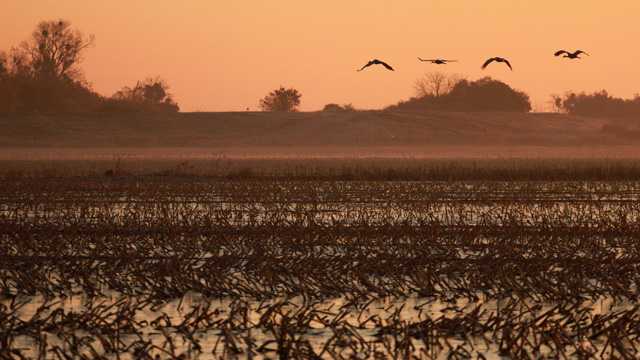
Los Angeles is offering rice farmers in the Sacramento Valley more money than the city has ever paid for water — $700 per acre-foot. At this price, rice farmers could make more money selling water than they can make on their crops.
That makes it easy to say “yes,” says Lance Tennis, whose family has about 900 acres near Chico, an hour north of Sacramento. He says rice farmers in the Sacramento Valley feel compelled to help their parched neighbors to the south, but they wouldn’t want to make a habit of it.
“We’re rice growers, not water marketers,” Tennis says. “It’s something you would never want to commit to on an ongoing permanent basis because these water rights are very precious, very valuable to us — they’re the only thing that makes this land up here worth what it is — the ability to grow rice.”
Assuming the drought doesn’t curtail his local water district’s own supply, farmers like Tennis could get about $2,100 this year for every acre they agree to fallow. That’s because it takes more than three acre-feet of water to grow one acre of rice. By contrast, selling the rice nets a profit of between $1,000 to $1,500.
Following a brief “wet” season marked by California’s driest January on record, Metropolitan Water District in L.A. is offering to buy more than $70 million worth of water.
